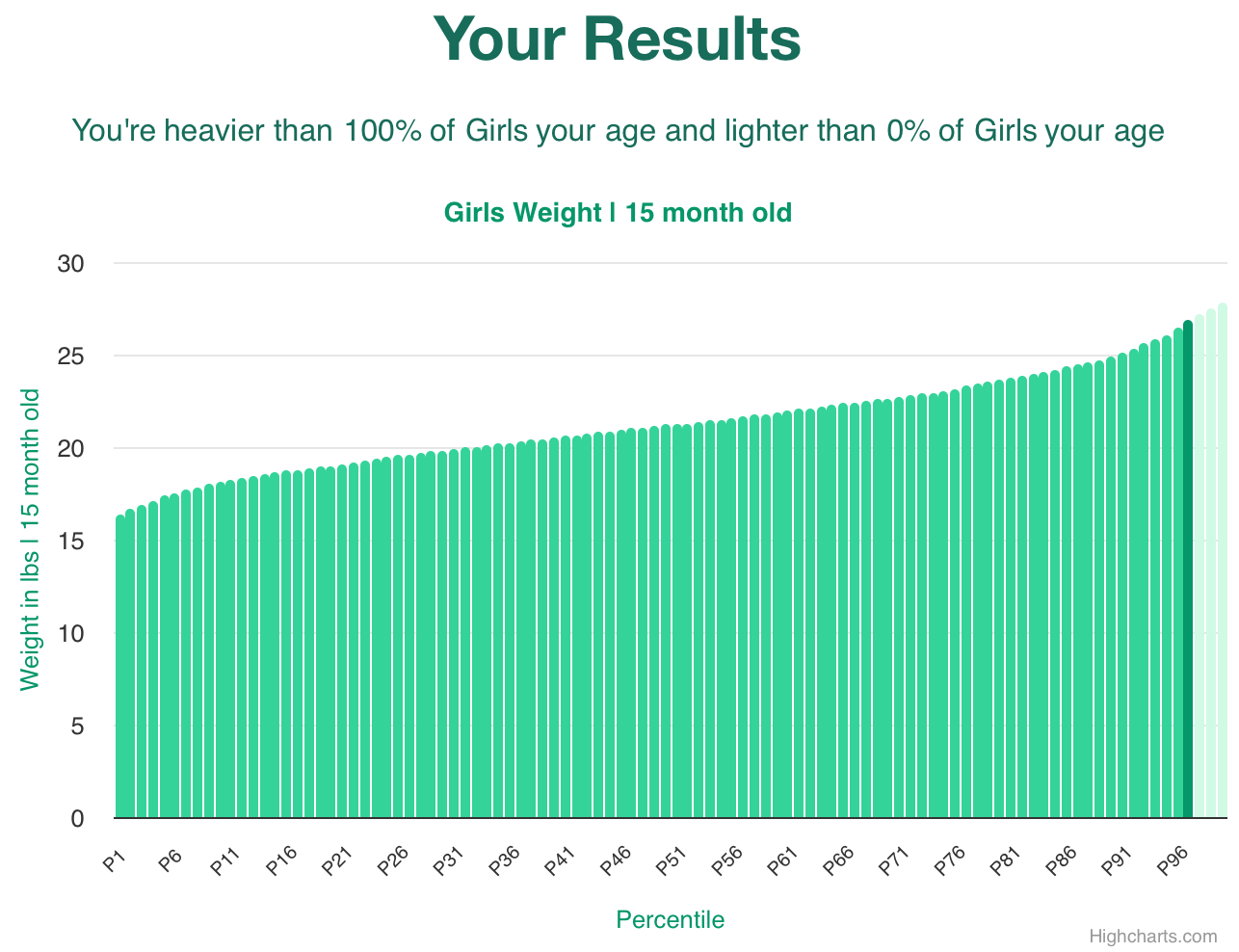Girls Weight chart in lbs for Toddlers 15 month old

General Summary: 15 month old girls weight
In most cases, weight measurements for 15 month old girls will be in the range between 17 and 26 lbs. The average weight for 15 month old girls is 21 lbs, according to the CDC and anonymized data from users.
All Results
Enter your weight measurements above to see how they compare
So far, we have recorded [0] weight measurements for 15-month-old girls on LifeMeasure!
(chart updates daily)
See more ages